






by Matthew S. Bajko
In his first time presiding over such a ceremony, San Francisco Mayor Daniel Lurie administered the oath of office to the city’s treasurer-tax collector, José Cisneros, two days after taking his own oath. An admittedly nervous Lurie flubbed the start by stating Cisneros’ name instead of prompting the gay elected leader to say his own name before quickly correcting himself.
“I, Jose Cisneros. No, I (state your name),” said Lurie.
Afterward, an amused Cisneros complimented Lurie, telling him, “You did that well for the first time,” and noting, “he is more nervous than I am.”
Likely it was due to the fact that it was Cisneros’ sixth time being sworn in to a new term in his citywide municipal elected position. First appointed in 2004 by then-mayor Gavin Newsom to fill a vacancy, Cisneros won a competitive race for a full four-year term in 2005.
He has run unopposed ever since though his name still appears on city ballots, as it did in last November’s election. As the Bay Area Reporter has reported, Cisneros is the longest-serving gay Latino and out person of color elected official in the U.S.
In 2019, 15 years into his tenure, Cisneros took the record for being San Francisco’s longestserving openly gay official in the same elected position. Gay former supervisors Tom Ammiano and the late Harry Britt both served on the board for 14 years.
Come 2026, Cisneros will have matched the current record-holder for the Bay Area region, gay former Berkeley City Councilmember Kriss Worthington, who served for 22 years in his position before opting not to seek reelection in 2018. Thus, should he serve out his latest term through 2028, Cisneros will lay claim to being the Bay Area’s longest-serving LGBTQ elected official in the same position.
And he could extend his time in office through 2032, as Cisneros told the B.A.R. last year that he is considering seeking a seventh term.
“I have been at City Hall for a long time,” Cisneros noted at his swearing-in ceremony, held January 10 on the balcony outside of the mayor’s office on the second floor of City Hall.
See page 8 >>





The San Jose Sharks of the National Hockey League held their annual Pride Scrimmage 2025 event Friday, January 10, at SAP Center. The Sharks presented members of the SF Earthquakes LGBTQ+ Hockey Club and Team Trans with Pride-themed Sharks jerseys, with crest and patch artwork designed by Local Color artist Melissa Marzan. Sharks Sports and Entertainment President Jonathan Becher, left, presented jerseys to SF Earthquakes’ Kieran Flaherty and Team Trans’ Keira Weile, and the group was joined by Scott Hannan, a retired Sharks player and director of the Sharks Junior Hockey Club. The jerseys, signed by Sharks players, were produced for the team’s January 11 Pride game against the Minnesota Wild, which defeated the Sharks 3-1. The game celebrated the LGBTQ+ community and recognized the importance of diverse identities within the community, noted Flaherty. The San Jose Sharks Foundation also presented the SF Earthquakes with a $30,000 check to activate and elevate its Hockey with Pride program. For more information, visit the SF Earthquakes’ Facebook page at facebook.com/sfquakes/




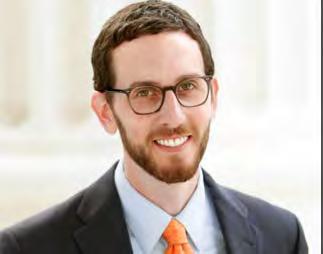
by Matthew S. Bajko

Legislation being introduced January 9 would require court records related to the gender transitions of transgender and nonbinary adults in California be sealed in order to protect their privacy. If enacted into law, the bill would apply retroactively to make confidential all records relating to previous name, gender, and/or sex change petitions held by state courts.



See page 8 >>
by Cynthia Laird
Members expelled the former president of the Harvey Milk LGBTQ Democratic Club in a vote Tuesday, January 7. The decision follows an investigation into the club’s endorsement process for the November election that concluded Jeffrey Kwong manipulated the vote in some races.
Current club President Gary McCoy, a gay man, also issued a statement accusing Kwong of taking club property and failing to sign an agreement to return the items.
Kwong, a gay man, stepped down as president last August, as the Bay Area Reporter noted. He had been president since January 2023.




flag that jumped out when folks spotted votes from long-absent peers. Whose election was he trying to help? It’s not clear. Members speculated Kwong was trying to endorse people and ballot measures to bring in more funding for Milk’s slate card mailers, which in turn would help the club’s endorsed candidates, including [Aaron] Peskin for mayor.”
The Los Angeles Blade covers Los Angeles and California news, politics, opinion, arts and entertainment and features national and international coverage from the Blade’s award-winning reporting team. Be part of this exciting publication serving LGBT Los Angeles from the team behind the Washington Blade, the nation’s first LGBT newspaper. From the freeway to the Beltway we’ve got you covered.
His resignation followed news that some of the club’s endorsements were “potentially fraudulent” and “compromised.” The club retained attorney Scott Emblidge of Moscone Emblidge and Rubens to conduct an investigation.
Dues-paying club members were invited to a special meeting January 7. According to the notice, “At this meeting, the Executive Board Investigation Subcommittee will share its findings on last year’s endorsement process voter fraud, and space will then be held for Q&A and a discussion before the membership votes on the Executive Board’s recommendation of expulsion for Jeffrey Kwong in response to complaints of civility violations.”
According to an item in the San Francisco
Standard’s January 8 Power Play newsletter, which cited the report, Kwong manipulated endorsement votes.
“In a presentation for Milk club members, the club’s investigation committee – including Seamus McGeever, Melissa Hernandez, and Peter Gallotta – alleged that Kwong faked votes for endorsements by impersonating 30-plus members on Zoom,” the Standard reported. “They said Kwong pretended to be dues-paying members who hadn’t attended meetings lately – a red
Peskin, the former president of the Board of Supervisors, ran for mayor as the progressive candidate, but lost to Daniel Lurie, who was sworn in as mayor January 8.
Kwong issued a statement to the B.A.R. “As the former president of the Harvey Milk LGBTQ Democratic Club, I reject the unfounded and politically motivated allegations being made against me. These claims come from individuals with personal grievances. This is not about facts – it’s about attacking me to distract from their own shortcomings.”
McCoy has not publicly released the report. Following the special meeting, the club released a brief statement.
“After a closed session, the club’s membership voted in the affirmative to expel Jeffrey Kwong from the Harvey Milk LGBTQ Democratic Club,” the statement read. “Because of the nature of the civility complaint, and per Robert’s Rules of Order, we will have no further comment on this action.”
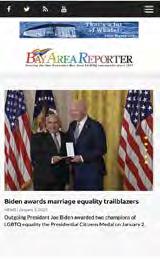
See page 8 >>


EVECommunityVillage–BRANDNEWAFFORDABLEAPARTMENTS!
EVECommunityVillage,locatedinthePotreroHillneighborhoodofSanFrancisco,offers38affordable 1-,2-,3-,&4-bedroomapartments.Applicationsfortheunitsaffordabletohouseholdsearningbetween 30%to50%oftheareamedianincome(AMI)willbeavailableontheDAHLIASanFranciscoHousing PortalstartingJanuary10,2025.
PlannedamenitiesatEVEwillincludeonsitelaundry,communityroom,coveredparking,andsecured entry.Apartmentswillfeatureall-electrickitchens,ceilingfans,anddishwashers.

ApplicationswillbeavailableonlineontheDAHLIASanFranciscoHousingPortalfromJanuary10, 2025–January31,2025at5:00PM. Allapplicationsmustbesubmittedonlineat housing.sfgov.org.For assistance,contactoneofthehousingcounselingagencieslistedat housing.sfgov.org/housing-counselors
Thispropertyhassomeunitswithspecialfeaturesformobilityimpairedorsensoryimpairedhouseholds. Severalpreferencesapply;learnmoreat housing. sfgov.org Incomeandotherrestrictionsapply.Section 8welcome.EqualHousingOpportunity.




compiled by Cynthia Laird
After two town hall meetings were held last fall, the recently formed San Francisco Dyke March in terim steering committee has announced a third town hall will be held on Zoom Wednesday, January 22, from 6 to 8 p.m. The meeting is free but participants will need a ticket, according to an email announcement.
The Dyke March did not officially take place last year;

traditionally, it is held the Saturday evening prior to the Pride parade in June. As a result, an interim steering committee was formed to organize and plan a Dyke March for 2025. The interim steering committee consists of Crystal Mason, board chair; board members Celestina Pearl and Ruth Villaseñor; and project director M Rocket.
The interim steering committee has set up a governance committee, which has met twice, the email stated.
In the email, the committee stated that the first order of business is to sort folks into committees so that the time-sensitive planning logistics and fundraising can begin. “The governance committee is working as fast and furiously as possible to set up enough structure to be able to hold the SF Dyke March in 2025, while also building the early foundations for a three to five year rebuilding-development plan,” the email stated.
Interested people are still welcome to take an online volunteer survey at https://tinyurl.com/58u4792b. For more information, email sfdykes2025@gmail.com.
At San Francisco Towers, we believe home is more than just a place—it’s a feeling. Our beautifully appointed apartments offer both the comfort of personal space and the richness of connection. This is where refined living meets authentic community, where each day brings opportunities for meaningful experiences and true belonging.
The decision is yours, and the possibilities are endless.
The new year means simpler parking fees and no dog fees for East Bay Regional Parks, the agency announced in a news release. The park district’s board voted on the fee changes at its December 3 meeting and they took effect January 1. The new fee schedule includes a flat $5 parking fee at East Bay Regional Parks where kiosks are present. The flat fee makes it simpler and easier for the public to visit East Bay Regional Parks, the release stated. Previously, parking fees ranged from $3 to $6 depending on the specific park. The new fee does not apply to Del Valle Regional Park in Livermore on weekends and holidays April through Labor Day, which has a flat $10 entrance fee on those peak days that covers parking and other fees. Dog fees have also been eliminated for 2025, according to the release. Dogs are required to be on leash in designated areas, including trailheads, parking lots, paved trails, and picnic areas. Dogs must also be on leash around horses and in parks where cattle are present. The dog fee was $2. Visit ebparks.org/dogs for more information.
A dog permit is still required to walk more than three dogs at a time, according to the release. Professional dog walkers are required to obtain a permit regardless of how many dogs they walk at one time. Visit ebparks.org/permits for details.
The updated fee schedule for 2025 also includes changes to swimming fees, day camp fees, special event fees, concessionaire fees, parking citation penalties, and vehicle release fees.
East Bay Regional Parks fees help recover, in part, the costs of providing a service, the release stated. The updated fee schedule streamlines pricing and better reflects the cost of services and impacts on the park district, according to the release.
To view the fee schedule for 2025, visit ebparks.org/sites/default/files/2025Fee-Schedule.pdf.
by John Ferrannini
Aformer UC Berkeley employee charged in the killing of a gay Black man in Oakland two years ago has agreed to a plea deal, though it still has to be approved by a judge. The agreement leaves some questions unanswered about what happened when Curtis Marsh was fatally stabbed at his home.
David Briggs, the attorney representing defendant Sweven Waterman, 40, of Oakland, told the Bay Area Reporter that Waterman changed his plea to guilty of voluntary manslaughter in late December in exchange for a sentence of 11 years. An Alameda County Superior Court judge will have the opportunity to accept or reject the plea deal January 31 in Department 11 of the Rene C. Davidson Alameda County Courthouse near Oakland’s Lake Merritt.
The Berkeley Scanner first reported the plea deal, which took place December 27 before Alameda County Superior Court Judge Clifford Blakely.
Waterman pleaded guilty to killing Marsh, 53, also of Oakland. Marsh, who was also known as drag artist Touri Monroe, was a hair stylist and a Miss Gay Oakland emeritus who used to sing with the Oakland Gay Men’s Chorus. Originally from Iowa, friends described him as fun, helpful, and active in his church.
Briggs had no further comment either on behalf of himself or his client, who is still being held in custody at Santa Rita Jail in Dublin.
News Briefs
The B.A.R. left a voicemail message with a spokesperson for the Alameda County District Attorney’s office, which has not been returned as of press time.
Preliminary hearing
As the B.A.R. previously reported, Alameda County Superior Court Judge Rhonda Burgess had ruled June 18 that the prosecution’s evidence was compelling enough to have Waterman stand trial after two days of hearing from witnesses for the prosecution. Neither side is contesting that Marsh was killed at his apartment on Vernon Street in the Adams Point neighborhood just before 8 a.m. March 4, 2023.
During the preliminary hearing, Alameda County Deputy District Attorney Jake O’Malley conceded that “we may never know what events transpired in that apartment.” Nevertheless, he alleged that “for the purposes of today ... the defendant was in that apartment when Curtis was killed, and his DNA is on the weapon.”
The first to testify was Ariel Butler, one of the Oakland police officers who responded to Marsh’s home the morning of March 4. The Oakland Fire Department was on the scene already, he said. (Neighbors had told KTVU-TV last year that the perpetrator set a fire and left the front door and gate open when running away.)
Butler said he’d spoken to a neighbor who “said there’d been multiple domestic violence incidents” in the past at the
Simon secures $2M to help reconnect Oakland’s Chinatown Freshman Congressmember Lateefah Simon (D-Oakland) announced $2 million in federal funding to reconnect Oakland’s Chinatown community to the waterfront by maintaining and enhancing pathways under Interstate 880. According to a news release from Simon’s office, I-880 has long split Chinatown from the waterfront neighborhood, limiting residents’ ability to access opportunities or simply travel safely between destinations. The grant will fund enhancements to the I-880 underpasses that currently separate Chinatown, in-

address. (Hearsay evidence is allowed at preliminary hearings.)
Oakland homicide Detective Kyle Cardana was the next one to testify. Cardana said when he arrived he saw Marsh’s body with stab wounds on the balcony of the apartment, as well as a “bent knife on the ground.”
“At first glance ... there may have been some blood on the knife,” he recalled.
Cardana said that when he walked into the apartment it was “covered in an inch or two inches of water” due to overhead sprinklers, which were no longer on at the time he entered the apartment, though there was still a small fire “near a bar stool.”
Cardana said that, initially, Marsh’s male domestic partner, whom the B.A.R. is not identifying because he did not testify at the preliminary hearing, was taken into custody. However, the partner showed text messages that proved he was at a friend’s house in Em-
creasing safety measures, expanding accessible walkways and bike paths, and ensuring the long-term health of the Chinatown community.
“For too long, the I-880 has divided and harmed Oakland’s vibrant Chinatown community,” Simon stated. “As someone who is legally blind and is transit dependent, I know personally how accessible and safe transit options
eryville from about 7:15 in the morning until after the time of the killing. He has not been charged.
“We believe the killing occurred between 7:30 and 7:52 hours in the morning,” Cardana said.
The partner returned after hearing from another friend that Marsh was injured.
Cardana recalled that a neighbor told him that around 7:30 a.m. “she heard screaming, what appeared to be fighting, and saw Mr. Marsh scream, so she ran to get her cellphone to call 911.”
Cardana said that as part of their investigation, police obtained a video showing a man arriving on a Lime scooter that morning after 5:17 a.m. The court viewed the video, and another taken after the time believed to be the time of the killing, showing a man leaving the apartment.
Police obtained a subpoena for financial records from Neutron Holdings Inc., which owns the scooters. It showed a scooter ride in Oakland that started at 5:10 a.m. March 4 and was updated after 5:17 as being paid for by Waterman, Cardana said. After being contacted by police, Waterman gave a swab of his saliva to Oakland police.
Cardana said, “We determined there were at least 1-2 people inside the apartment at the time of the attack.”
During cross-examination, Briggs asked, “so, is it possible there were three people in the apartment at the time [Marsh] was attacked?”
are the difference between surviving and thriving.
“This project will help bridge the gap between Chinatown and other portions of Oakland and begin to rectify harmful infrastructure decisions that have divided the neighborhood and foster community building with historically disadvantaged families,” she added.
Answered Cardana, “That is unknown.”
“So it is possible,” Briggs asked.
“It could be, yes,” Cardana answered.
Angela Freitas, a DNA evidence expert, also testified at the preliminary hearing, saying that Oakland police sent her office several samples, including four different swabs from the knife, as well as a swab of DNA from Waterman.
O’Malley asked what she’d discovered. There was DNA from four people on the knife, she said. One sample showed that it was 660 octillion times more likely DNA came from Waterman and three unknown individuals than if it was from four unknown individuals, she said.
“For reference, an octillion has 27 zeros,” she added.
Briggs honed in on the fact that DNA from at least two other people, who were not Waterman or Marsh, was found on the knife, including one that Freitas determined to be from a male who could not be identified using the Combined DNA Index System, or CODIS, an FBI-run database of the DNA of convicted offenders, unsolved crime scene evidence, and missing persons. Briggs also had Freitas concede it is possible water damage could damage the reliability of the DNA evidence.
O’Malley had the chance to question Freitas again. She testified there is no way to know when DNA was left on any particular item. t
According to the release, Simon and California’s two Democratic U.S. senators, Alex Padilla and Adam Schiff, secured this grant through the U.S. Department of Transportation’s Reconnecting Communities Pilot grant program created by the Bipartisan Infrastructure Law, which was signed into law by President Joe Biden in 2021.

Volume 55, Number 3
January 16-22, 2025 www.ebar.com
PUBLISHER
Michael M. Yamashita
Thomas E. Horn, Publisher Emeritus (2013)
Publisher (2003 – 2013)
Bob Ross, Founder (1971 – 2003)
NEWS EDITOR
Cynthia Laird
ARTS & NIGHTLIFE EDITOR
Jim Provenzano
ASSISTANT EDITORS
Matthew S. Bajko • John Ferrannini
CONTRIBUTING WRITERS
Christopher J. Beale • Robert Brokl
Brian Bromberger • Victoria A. Brownworth
Philip Campbell • Heather Cassell
Michael Flanagan •Jim Gladstone
Liz Highleyman • Brandon Judell • Lisa Keen
Philip Mayard • Laura Moreno
David-Elijah Nahmod • Mark William Norby
J.L. Odom • Paul Parish • Tim Pfaff
Jim Piechota • Adam Sandel
Jason Serinus • Gregg Shapiro
Gwendolyn Smith • Charlie Wagner
Ed Walsh • Cornelius Washington • Sura Wood
ART DIRECTION
Max Leger
PRODUCTION/DESIGN
Ernesto Sopprani
PHOTOGRAPHERS
Jane Philomen Cleland
Rick Gerharter • Gooch
Jose A. Guzman-Colon • Rudy K. Lawidjaja
Georg Lester • Rich Stadtmiller
Christopher Robledo • Fred Rowe
Shot in the City • Steven Underhill • Bill Wilson
ILLUSTRATORS & CARTOONISTS
Christine Smith
VICE PRESIDENT OF ADVERTISING
Scott Wazlowski – 415.829.8937
NATIONAL ADVERTISING REPRESENTATIVE
Rivendell Media – 212.242.6863
LEGAL COUNSEL
Paul H. Melbostad, Esq.


Bay area reporter
44 Gough Street, Suite 302 San Francisco, CA 94103
415.861.5019 • www.ebar.com
A division of BAR Media, Inc. © 2025
President: Michael M. Yamashita
Director: Scott Wazlowski
News Editor • news@ebar.com
Arts Editor • arts@ebar.com
Out & About listings • jim@ebar.com Advertising • scott@ebar.com Letters • letters@ebar.com
Published weekly. Bay Area Reporter reserves the right to edit or reject any advertisement which the publisher believes is in poor taste or which advertises illegal items which might result in legal action against Bay Area Reporter. Ads will not be rejected solely on the basis of politics, philosophy, religion, race, age, or sexual orientation. Advertising rates available upon request. Our list of subscribers and advertisers is confidential and is not sold. The sexual orientation of advertisers, photographers, and writers published herein is neither inferred nor implied. We are not responsible for unsolicited manuscripts or artwork.
The countdown is on to Monday, January 20, when President-elect Donald Trump becomes the 47th leader of the United States. Unfortunately, his second term likely will result in higher prices for consumers, verbal skirmishes with foreign leaders, and the real possibility of military troops dispatched to allies Greenland and Panama because he wants to take over those countries.
MAGA adherents and other Americans who voted for Trump got played, and the sooner they realize it the better. Trump has already admitted he probably can’t do anything about high prices, after running on inflation and pledging to lower grocery costs during the campaign. “Look, they got them up. I’d like to bring them down. It’s hard to bring things down once they’re up. You know, it’s very hard,” Trump said in an interview with Time magazine after the election.
If Trump implements his promise of imposing tariffs on imported goods, those, too, will likely result in higher prices on an array of consumer products, as well as potentially disrupt the supply chain. We already have experience with that, thanks to Trump’s first term. “In fact, experts say Trump’s much-talked-about tariffs proposals would likely exacerbate supply chain woes,” NBC News reported.
“It already happened during Trump’s first administration, when ocean container shipping market rates spiked more than 70% in 2018 after he announced new tariffs, according to Reuters.”
If Trump really wanted to do something about imports and the supply chain, he’d go after the Houthi pirates who have disrupted shipping routes by attacking ships in the Red Sea for nearly two years. But instead, Trump thinks transgender people serving in the military are a danger to the country. And, soon after taking office, he will likely reinstate the ban on trans service members that he instituted in 2017 during his first term, and which President Joe Biden rescinded in 2021.

lina) didn’t want her trans colleague, Congressmember Sarah McBride (D-Delaware), using women’s restrooms on Capitol Hill. House Speaker Mike Johnson (R-Louisiana) dutifully went along and implemented the rule change. Now, Mace has her sights set higher, by introducing a bill that would ban trans people from using restrooms that match their gender identity on federal property. That could include national parks, federal office buildings, and airports. Good grief.

In fact, the war on trans people will get ugly and only intensify. Trump knows it’s a talking point that riles up his supporters, especially the issues of gender-affirming health care and trans girls playing on girls’ sports teams. Bathroom battles are back on the front page after Congressmember Nancy Mace (R-South Caro -
Social media sites have grown coarser, led by Trump’s “first buddy,” Elon Musk, and his X platform. In recent weeks, Musk’s been joined by Meta CEO Mark Zuckerberg, whose Facebook, Instagram, and Threads platforms will also change now that he’s announced there will be no more fact checkers to moderate anti-LGBTQ and other hateful content. Meta and Amazon are doing away with diversity, equity, and inclusion policies, following in the footsteps of several other corporations that made the switch last year. It’s all an effort to cozy up to Trump, who has convinced the MAGA world that fairness and respect are out of fashion and that people can now be vilified online for who they are. It’s shameful. Immigration, of course, is another top prior-
ity for Trump, and has severe ramifications for so many undocumented people. While Trump has pledged to “launch the largest deportation of criminals in American history,” as reported by the conservative Washington Examiner, Axios noted that there aren’t that many criminals who could immediately be deported.
“Less than 0.5% of the 1.8 million cases in immigration courts during the past fiscal year – involving about 8,400 people – included deportation orders for alleged crimes other than entering the U.S. illegally, an Axios review of government data found,” the outlet reported. What’s far more likely to happen is that plenty of non-criminals will be caught up in these immigration roundups, and that’s why so many undocumented and documented people alike, including LGBTQs, are terrified. That’s just what Trump wants – he needs to instill fear in people in order to build himself up. We’ll be interested to see what business leaders think –many companies depend on immigrants (legal or not) for work in dairy farms, poultry processing plants, and agriculture. If they’re suddenly without these vital workers, you can bet prices on those food items will shoot up – another example of how Trump won’t be able to keep his promise to the MAGA faithful. If there is an overarching theme to all of this, it’s that it’s Trump’s world now. No longer content to confine himself to U.S. borders, he believes he can do whatever he wants, whether it be steamrolling over democratically elected leaders around the globe or adding to mental health stressors that so many LGBTQ people, immigrants, and others already routinely deal with here at home. Trump and his cronies are laughing all the way to the White House, as they prepare to enact policies that will make the rich wealthier and the rest of us fight for the scraps left over. That’s no way to run a country like the U.S.; unfortunately, too many voters didn’t see it that way.
Whatever resistance there is, it’s not as broad as eight years ago. We will need to rely on local and state leaders to enact policies and programs that will help people get out of poverty, assist with higher education, access health care and child care, and stand up to the authoritarianism that is engulfing this country. The rightwing takeover of the presidency, Congress, and the U.S. Supreme Court has real world consequences. Hopefully, Americans will soon realize the horrific downsides and wake up before it’s too late. t
by Justice Horn
Today, as we stand at the dawn of a new era,
we are called not just to resist but also to rise.
As Donald Trump takes office as the 47th president of the United States on Monday, January 20, we face a harsh reality: the challenges ahead for Black, LGBTQ+, young, and marginalized people are greater than ever, but let us not be swayed by fear or uncertainty. It’s time to call upon the strength, resilience, and unity that has guided us through the darkest of times.
With Republicans in control of the White House, Congress, and the judiciary, we are confronted with a government determined to dismantle the progress our ancestors fought to achieve, but this is no time to retreat. This is a rallying cry to build stronger alliances at the local levels where our power can still shape the course of history. Those who seek to oppress us want us divided, but we cannot let that happen.
We must focus on finding fair-minded allies who will fight alongside us for racial justice, LGBTQ+ rights, women’s rights, and the dignity of all people. While the federal government may be hostile, local and state governments are where we can make the most immediate, tan gible impact. We must engage with leaders who share our vision for a just society and advocate for policies that directly affect our lives – on health care, housing, and education.
We cannot wait for Washington to act. Our cities, counties, and states are where we can influence change, and with the right alliances, we can protect our communities from the damage a Trump-led administration will inflict.
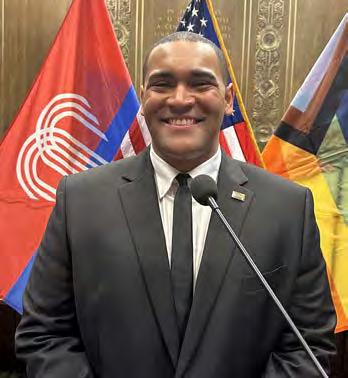
but for my right to be seen, heard, and respected. Under this new federal administration, the challenges will undoubtedly intensify, especially in a state where conservative forces already dominate, but fear will not paralyze us. We are fighters. We have faced discrimination, violence, and systemic exclusion, but we have always fought for our place in the world – and we will continue to do so.

Here in Missouri, I understand the fears of those of us who live at the intersection of multiple marginalized communities. As a Black gay young man, I fight daily not only for my survival,
Building alliances with allies who stand in solidarity with our struggles will be key. These are the local elected leaders who can enact protections against discrimination, pass policies that safeguard our health and safety, and create sanctuaries for our most vulnerable communities. We are not powerless, we are the descendants of the resilient, the bold, and the unwavering.
We must draw on the strength of our ancestors, who faced the unimaginable – enslavement, segregation, and systemic violence – and yet they
fought. They resisted, created, built, and even dreamed. Today, we carry that legacy. We are the embodiment of their resilience. Now, we must build new models of resiliency – communities rooted in care, mutual aid, and strength. We need systems that ensure our survival and growth, regardless of the forces that seek to crush us in 2025. This isn’t just about surviving; it’s about building the infrastructure of our future – accessible health care, safe housing, quality education, and equitable jobs. We must protect and uplift our most vulnerable: our elders, our children, our queer and trans siblings, and our minority communities.
Yet, in the face of this fear, there is also hope that we as a people will still have the power to resist, organize, and demand accountability from those who seek to undo progress. The federal government may have a new face, but the power of the people is eternal. We must remain vigilant, loud, and unyielding. We cannot afford to be passive spectators in this fight. Every victory will be hard earned, every right we hold dear is now in jeopardy, and it is up to us to defend it.
So, I leave you with this: As we watch Trump take office, remember that this is not the end. It is the beginning of a new chapter. The road ahead will be long, and the battle will be hard, but we are not alone. Together, we will rise.
This is a call to action. A call to rise, a call to organize, and a call to win. t
Justice Horn is an activist and a proud Missouri resident, serving as the highestranking member of Gen Z in the Kansas City region as a Jackson County Plan Commissioner. A trailblazer for his generation, he embodies the diverse future of our society – Black, Native, White, Polynesian, and openly gay – standing as a powerful advocate for progress in Missouri.
by Matthew S. Bajko
There was no mention of closing school sites or laying off educational staff. No one spoke directly about exactly how much money may need to be cut to provide a balanced budget for the 2025-2026 academic year.
Instead, a sense of optimism and a turning of the page to more cooperation and collegiality among the seven members of the San Francisco Board of Education permeated the January 10 swearing in ceremony for the winners of the four seats that were on the November ballot. Among them was newcomer Jaime Huling, a bisexual married mom of two children, one a second grader in the district.
Like nearly all of the speakers at the ceremony, Huling said she was filled with “optimism for the future of” the San Francisco Unified School District and its roughly 42,000 students spread across more than 100 campuses around the city. Though she acknowledged the school board has “work to do to balance our budget.”
Last fall, the school district had projected it needed to slash $100 million from its budget to deal with deficit spending and avoid being taken over by the state. In his remarks at the roughly 90-minute ceremony, State Superintendent of Public Instruction Tony Thurmond noted that the district is not yet under the control of his statewide office but does receive fiscal guidance from it.
“As a nation, we fail to live up to the rhetoric that our kids are our greatest value,” said Thurmond, a candidate for governor in 2026, of the disinvestment in public education.
Part of the problem for California school districts is declining enrollment, noted Thurmond, which he said all districts in the state are experiencing and results in less funding for them from Sacramento. A former school board member himself in his home city of Richmond in western Contra Costa County, Thurmond warned the incoming school board members they were taking on one of the hardest jobs in elected politics.
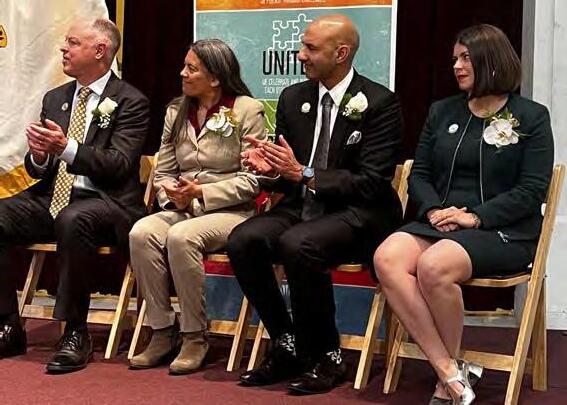
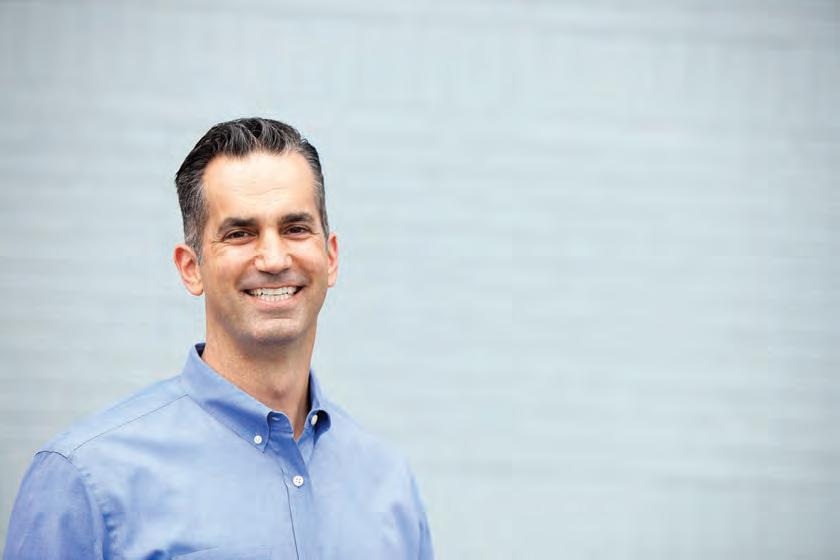
attorney at the National Center for Lesbian Rights and then as a deputy city attorney.
With the incoming administration of Republican President-elect Donald Trump expected to deport undocumented immigrants along with their children, even those born in the U.S., and rollback the rights of LGBTQ students, Huling promised she would “stand up to” Trump’s policies. She learned from the marriage equality movement that one needs “to fight to win,” a lesson Huling intends to apply to her new role as an elected school board member.

“Schools must remain a safe haven for learning,” said Huling.
She alluded to the numerous controversies that have engulfed the city’s school district in recent years, from fights over remote learning brought about by the COVID pandemic and a proposal to rename schools now jettisoned after a public outcry to the recall of three progressive school board members in 2022 and last year’s fights over budget cuts and a plan to close upwards of a dozen school sites that has, for now, been shelved.
Rather than focus on “grievances,”
“You probably are asking what have you signed up for,” he quipped.
Huling, a lawyer who had been on the ethics and elections team at the San Francisco City Attorney’s office, was required to leave her position due to running for the elected educational post. She landed in a similar job with the Oakland City Attorney’s office across the bay.
Sworn in by her former boss, San Francisco City Attorney David Chiu, Huling thanked her husband and children for their support throughout the campaign. She also apologized to her kids for having to miss a field trip in order to witness her take her oath of office.
“We can do hard things, especially when we know we are doing the right thing,” pledged Huling, who was part of the legal team that fought for same-sex marriage rights while working as a staff
Huling said it is time to “move beyond the divisive battles of the past.” She intends to deliver “results” and to “restore the public’s trust in our public schools.”
Straight allies and fellow parents of children who attend district schools, Parag Gupta and Supryia Ray, also took their oaths Friday. Thurmond swore in Ray and school board President Matt Alexander, who won reelection last fall, while gay state Senator Scott Wiener (D-San Francisco) presided over Gupta’s swearing in.
Gupta is the chief program officer at Mercy Housing, the largest U.S. nonprofit affordable housing provider in the U.S. that is working to add to the LGBTQ-affirming senior housing it has built in San Francisco. As for the workings of the school district, he pledged to
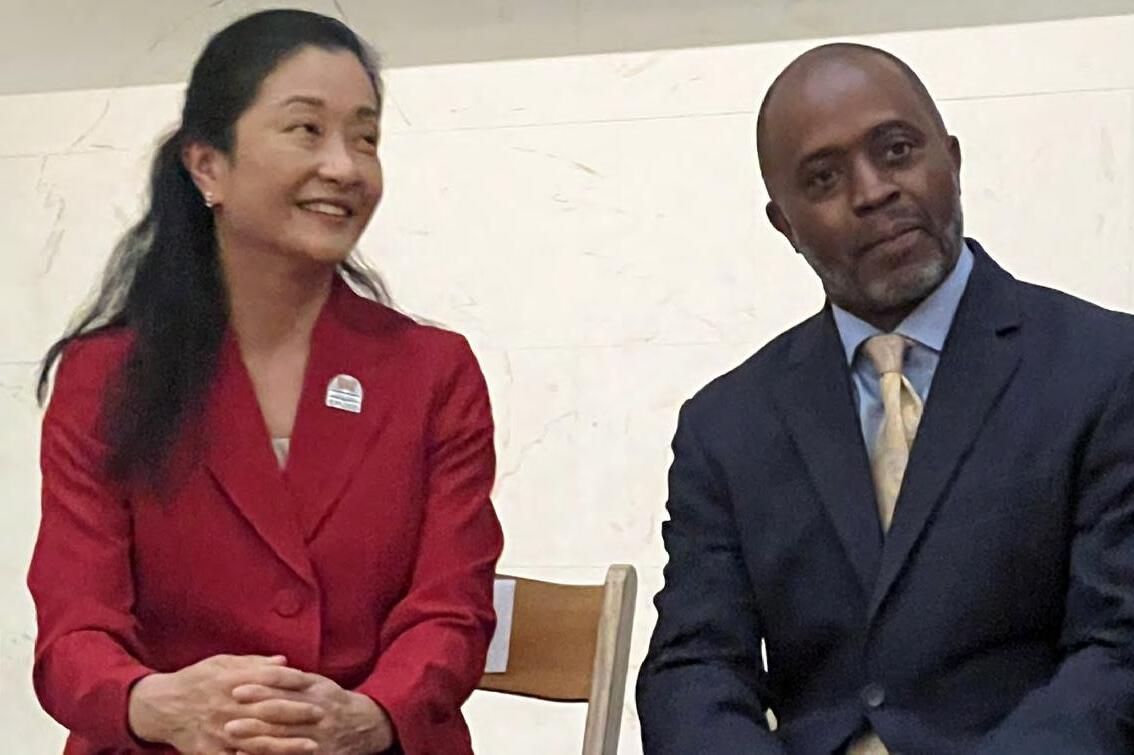
make them “boring.”
“Why? When the school district is boring, it is a sign it is working as it should,” Gupta explained, asking the attendees to “imagine the day when SFUSD is not in the news because it is simply getting the job done. That is what we strive for.”
Ray, an attorney, listed “transparency, accountability, and rebuilding trust” as her top priorities as a school board member. She said the newly constituted educational governing body is committed to making things better and delivering results for its students.
“In the past, too often, we have forgotten about that and, too often, gotten enmeshed in adult drama,” said Ray.
They will serve alongside gay school board member Phil Kim, appointed by former mayor London Breed to fill a vacancy last year and not up for election until 2026.
“I am very excited to serve alongside such talented individuals in serving our city and our youth,” Kim told the Bay Area Reporter.
Alexander, a straight ally, is a former longtime teacher and principal in the district. In his remarks, he referenced the fiscal and bureaucratic mismanagement that has plagued the school district “for a while.”
But he also expressed a belief that those days are now behind it. Following the acrimonious departure of its former superintendent Matt Wayne, the school board brought on last October Superintendent Maria Su, Ph.D., who formerly led the city’s Department of Children, Youth, and Their Families.
“I really think this is our moment,” said Alexander.
Su had headed up a team of top city officials whom Breed had dis patched to the school district to help administrators deal with budgetary and other matters. In a sign of how imperative it is for the school leaders to have a close working relationship with the mayor and Board of Super visors, who have stepped up over the years to financially support the district, the swearing in ceremony Friday for the quartet of school board members was held in the North Light Court of City Hall.




In attendance was a host of supervisors, including newly installed board President gay District 8 Supervisor Rafael Mandelman and queer District 9 Supervisor Jackie Fielder, sworn in herself on January 8 to her first term. New Mayor Daniel Lurie addressed the audience before leaving to announce his appointment of Battalion Chief Dean Crispen as the city’s new fire chief. A 34-year veteran of the department, Crispen will start in the role on January 21.
“Today marks a new chapter for San Francisco public schools,” declared Lurie, echoing the optimistic tone of the proceeding.
The Bay Area Reporter can help members of the LGBTQ community in the San Francisco Bay Area reach more than 120,000 local residents each week with their display of Obituary* and In Memoriam messages.
RATES: $21.20 per column inch (black & white) $27.75 per column inch (full color)
DEADLINES: Friday 12 noon for space reservations Monday 12 noon for copy & images TO PLACE: Call 415 829 8937 or email us at advertising@ebar.com
*Non-display Obituaries of 200-words or less are FREE to place. Please email obituary@ebar.com for more information.

by John Ferrannini
Two queer women have signed a lease to open a women’s sports bar in San Francisco’s Castro neighborhood. The new enterprise is believed to mark the first return of a lesbianthemed bar in the LGBTQ neighborhood in decades.
Sara Yergovich and Danielle Thoe, business partners and friends, will be opening Rikki’s – named for the late longtime lesbian activist, bar owner, and Federation of Gay Games cofounder Elizabeth “Rikki” Streicher – at 2223 Market Street, the former location of Copas, which closed in 2024.
It will be a few doors down from the gay-owned sports bar Hi-Tops at 2247 Market Street. Jesse Woodward opened it in December 2012 with partners Matt Kajiwara and Dana Gleim, providing the first space of its kind in the Castro for queer sports aficionados to hang out, watch athletic games on its TVs, and order drinks over a bite to eat.
Yergovich and Thoe, who met through the San Francisco Spikes Soccer Club, on whose board Thoe serves, said they found it difficult trying to watch women’s sports at San Francisco sports bars.
“The origin was us trying to watch sports together at bars with friends and having trouble with traditional sports bars not wanting to put women’s sports on or not having the right streaming services or channels,” Thoe, who is queer and pansexual and lives in the Inner Richmond neighborhood, said in a recent phone interview with the Bay Area Reporter. “Women’s sports are growing very rapidly, and I want to watch the sports.”
To Thoe’s point, the Bay Football Club started playing out of San Jose in the National Women’s Soccer League last year, and the Golden State Valkyries will start playing in San Francisco in the Women’s National Basketball Association this year.
Thoe said the pair will need about six months to get the bar up and running, which they hope will happen by May or June.
Yergovich, who is queer and lesbian and lives in the Castro, said naming the bar for Streicher was a natural fit. Streicher owned the lesbian bars Maud’s in the Cole Valley neighborhood from 1966 to 1989, and Amelia’s in the Mission district from 1978 to 1991. Maud’s and Amelia’s founded the first women’s teams in the San
Francisco Gay Softball League.
A co-founder of the Gay Games, Streicher died of cancer in 1994. The athletic field at the Eureka Valley Recreation Center in the Castro is named after her.
“She was really known for creating exceptional community spaces,” Yergovich said of Streicher.
There are only a handful of bars catering to queer women in the city, all in or near the Mission district. The Castro hasn’t seen a lesbian-themed bar in decades.
The Cafe San Marcos billed itself as a lesbian club for a time in the 1980s and 1990s. A May 5, 1994, B.A.R. cover story headlined “Is The Cafe trying to get rid of women?
Most people say no” relates that the Cafe “has for the last few years been San Francisco’s only bar frequented largely by lesbian women” but that “the male-female ratio of the clientele is shifting, with men comprising up to 80 percent figure of the club’s patrons on some Saturday nights and its female habitués are not thrilled.”
While the club, which by then had been renamed The Cafe, raised money for lesbian causes, there were rumors of a “secret plot to destroy The Cafe’s
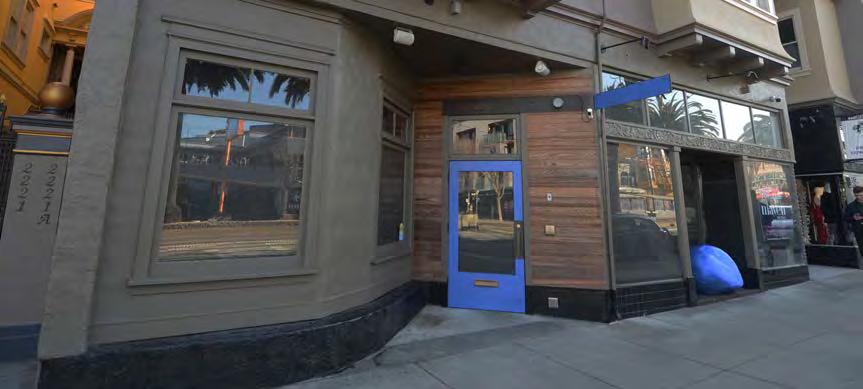

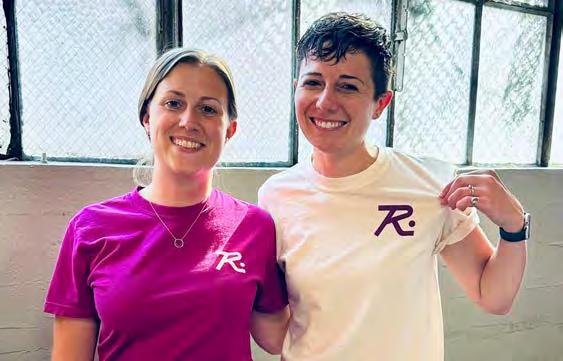
woman-friendly atmosphere” by, for example, “free drink tickets scattered amongst the gay male population, to lure them,” the B.A.R. reported –charges the club denied.
Yergovich and Thoe have been raising money on their website and through women’s sports home watch parties since the concept was announced in August, and they are still accepting donations. Future watch parties will be announced on their Instagram page, the women said.
According to their crowdfunding webpage, they have raised close to $244,000 toward a goal of $425,000.
People can invest any amount starting at $100 or more, with those giving at least $2,500 receiving an invite to the bar’s private opening party.
Kate Bove, a writer and executive assistant at the city’s LGBTQ film festival Frameline, noted on that site that, “I have lived in SF for about a decade and it’s long been a struggle to find a bar willing to switch over to a women’s game – even if it’s an Olympic gold medal match. We need a space that prioritizes and centers women athletes and viewers (especially as the Valkyries inaugural season nears!).”
ported by the office of gay District 8 Supervisor Rafael Mandelman, now president of the board, and the Castro Merchants Association.
“We felt a lot of support from different groups we reached out to,” Thoe said. “The merchant’s association has been supportive. Folks are just excited there’s a more women’s-centric space in the Castro.”
Terry Asten Bennett, a straight ally who is president of the merchant’s association, told the B.A.R. that she’s “very excited to see this space reopen so quickly.”
“It is great for our local economy to see new demographics,” Asten Bennett stated. “I wish them nothing but success and look forward to seeing what they do with the space.”
Mandelman said that he welcomes the new business.
“I could not be more excited to welcome Rikki’s Bar SF to the Castro,” he stated. “A women’s sports bar will be a fantastic addition to a neighborhood that has not always felt especially welcoming to women.

Thoe said the pair has felt sup-

“I am glad and grateful that Danielle and Sara have chosen the Castro and District 8 as Rikki’s future home,” Mandelman added. t
domestic partner, or grandparent, can receive paid family
The January 9 article, “Former Teamsters official and LGBTQ ally Allan Baird dies” about the passing of the former Teamsters leader should have stated that he passed away late Tuesday, January 7. The online versions have been corrected.


by John Ferrannini
Anita Bryant, the Florida orange juice promoter turned anti-gay rights activist who inspired the failed California Briggs Initiative, died in obscurity last month. She was 84.
Ms. Bryant died December 16, according to an obituary that was published by her family January 9 in The Oklahoman.
Ms. Bryant was born March 25, 1940, in Barnsdall, Oklahoma. After winning a singing contest on Arthur Godfrey’s talent show, she got a TV show of her own at age 12, which in turn propelled her to winning Miss Oklahoma in 1958 and becoming the second runner-up of Miss America the following year. The next decade was dominated by her singing career – including performances at the funeral of former President Lyndon Baines Johnson, and at the half-time show of Super Bowl V.
In 1969, Ms. Bryant became a spokesperson for the Florida Citrus Commission, stating the famous tagline “Breakfast without orange juice is like a day without sunshine” in the group’s TV advertising.
But she soon waded into the culture wars and became a virulent anti-LGBTQ crusader. Those battles ended up costing her lucrative contracts, as com-

have been set for Allan M. Baird, a former Teamsters official who was a staunch ally to the LGBTQ community. Mr. Baird was pronounced deceased late January 7. He was 92. A viewing will be held Tuesday, January 21, from 5 to 8 p.m., at Duggan’s
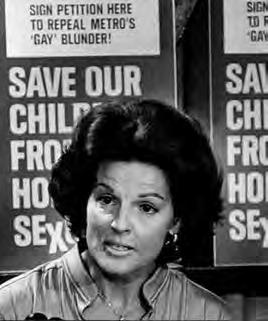
panies sought to distance themselves from her strident homophobia.
Ms. Bryant used her national fame and recognition to lead a successful campaign to repeal a 1977 Dade County, Florida (now Miami-Dade County) ordinance to prohibit discrimination on the basis of sexual orientation. She led the first organized opposition to the American gay liberation movement about a decade after the 1969 Stonewall riots, which she called Save Our Children Inc.
Ms. Bryant was an early proponent of the “homosexual recruitment” conspiracy theory, which is still peddled today by anti-LGBTQ groups.
Funeral Services, 3434 17th Street in San Francisco. The viewing will resume Wednesday, January 22, at 9:30 a.m. at the same location followed by an 11 a.m. life celebration.
Mr. Baird is best known for spearheading the Coors Brewing Company boycott with Harvey Milk in the 1970s. He led the famous 1973 boycott of Coors beer because of the company’s thenhomophobic and anti-union stances.
To read the Bay Area Reporter’s obituary for Mr. Baird, go to https://tinyurl. com/ypfzpzkm.
“What these people really want, hidden behind obscure legal phrases, is the legal right to propose to our children that theirs is an acceptable alternate way of life,” Ms. Bryant said.
After the victory in the Sunshine State, Ms. Bryant took Save Our Children to St. Paul, Minnesota; Wichita, Kansas; and Eugene, Oregon.
Homophobia gained traction in CA
Gay former San Francisco supervisor and state assemblymember Tom Ammiano (D-San Francisco) was a public school teacher when Ms. Bryant’s homophobic rhetoric started gaining traction in the Golden State, long a haven for LGBTQ people.
“There was definitely a climate of gay rights laws being repealed and that certainly was red meat on the savanna for some of the homophobes here,” Ammiano told the Bay Area Reporter on January 10. “To get a gay rights law in Oregon and in Florida, and then get it repealed, excited the homophobia that existed here in California.”
The result of that was Proposition 6, the Briggs Initiative, a 1978 California statewide ballot measure that would have banned gay and lesbian teachers like Ammiano.
“It brings me back to a time I feel

Gary W. Davis June 14, 1954 –October 10, 2024
Gary W. Davis, the husband of Gilberto Mendoza Jr. for over 11 years and the love of his life since March 27, 1997, passed away suddenly of a heart attack on October 10, 2024. The couple met at Most Holy Redeemer Catholic Church in the Castro, when they



very strongly about our gay liberation era with Harvey Milk in the lead and how we felt resolved to push back,” Ammiano said, when asked to respond to news of Ms. Bryant’s death. “I think a person like her gave us that opportunity to really personalize it. To me, that was thrilling and we made advances.”
Ms. Bryant became what Ammiano termed “a favorite piñata” for the gay liberation movement.
The most famous example of this was in 1977 when, in Des Moines, Iowa, Ms. Bryant was hit in the face with a banana cream pie by gay activist Tom Higgins.
“At least it’s a fruit pie,” she quipped, before praying for Higgins’ soul and crying.
Ammiano joked, “As someone told me, rest in pie.”
“The pie in the face she got reminds me of the days such actions were admired and popular,” Ammiano said. “It’s hard to feel bad about her passing and her ideas resulted in … a lot of blood on her hands.”
Longtime gay activist Cleve Jones was on the frontlines of the fight in those days.
“I would say Anita was kind of an almost comedic figure, but one could not say the same of her protégé John Briggs, who attempted to capitalize on Bryant’s
were doing bingo to raise money for the AIDS hospice across the street. Gary loved to help and volunteer. He caught Mendoza’s attention by some of the things he would say to him as he walked around selling pull tabs.
The couple had just come back from their dream vacation and first trip to Europe; they had such a great time. Gary made that dream come true. He had drive and ambition and was a good, kind, loving man. Gary had his dream job at the top floor of MBIA headquarters at the Transamerica Pyramid.
momentum with Prop 6, which, had it passed, would have been incredibly dangerous,” Jones said. “It was easy to laugh at her but she enabled others who were less amusing.”
The opposition to the 1978 Briggs initiative was led by Milk (then a San Francisco supervisor), who traveled the state in a series of debates with legislative sponsor the late Republican state senator John Briggs. The late firebrand lesbian feminist Sally Gearhart also played a key role in the defeat of Prop 6, as detailed in the new documentary, “Sally!”
Bryant did damage
Gwenn Craig, a Black lesbian, also helped lead that effort alongside Milk, Gearhart, and other Bay Area LGBTQ activists.
“It hurt personally as well as politically. The damage she did was psychological as well as sociological and political and that’s why people hated her so vociferously,” Craig said of Ms. Bryant. “She never asked for forgiveness. She never sought redemption. She never thought anything she did was wrong. You’ll see so many people saying today they’re glad to see her gone. It’s sad but it’s understandable.”
The couple both retired in 2008 and moved to Arizona. Gary always encouraged Mendoza in anything he did, and Mendoza did the same for Gary. Gary leaves behind many dear friends in San Francisco and in the Tucson area of Arizona, and family in Michigan.
Stated Mendoza, “Gary, there will never be another you. I will love and honor you until my dying day. I, and Bella love and miss you so much.”
At 1440 By The Bay, we are thrilled to announce our new name, which reflects our unwavering commitment to providing exceptional assisted living services in Emeryville. While our name may be changing, our core values and dedication to upholding high standards of care remain firmly intact. Our new name reflects our ongoing pursuit of excellence and our commitment to creating a haven where residents can thrive. Join us as we embark on this exciting new chapter, where tradition and excellence come together to create a truly exceptional care-based living experience.

He first moved to the city in 1993 from Massachusetts, where he earned his B.S. from the MIT Sloan School of Management and had worked as an assistant vice president at Bank of Boston. In 1998, then-mayor Willie Brown appointed Cisneros to the city commission overseeing parking and traffic issues, and two years later Cisneros was appointed to the newly named San Francisco Municipal Transportation Agency Board of Directors. By 2002, Cisneros had been hired as the deputy manager for capital planning at the city’s transit agency. He stepped down two years later when Newsom tapped him to succeed former treasurer Susan Leal, a Latina and the first lesbian to hold a citywide elected position.
Authored by gay state Senator Scott Wiener (D-San Francisco), the bill would extend the same privacy protections trans and nonbinary youth have to people over the age of 18. In 2023, Governor Gavin Newsom signed into law Assembly Bill 223 by gay Assemblymember Christopher Ward (D-San Diego) that requires any court petition for a change of gender and sex identifier by a minor to be kept confidential.
“Making this personal identifying information public after someone transitions – including a person’s dead name, as well as the basic fact that they’re trans or nonbinary – pointlessly exposes trans and nonbinary Californians to harassment and potential violence,” stated Wiener. “Unfortunately, right-wing groups and individuals have used publicly available personal information to harass trans people in California and across the nation.”
Over the years, state lawmakers have passed bills to make it easier for Californians to update their name and gender on official documents, as well as make the process safer in terms of their pri-
“Looking ahead, the Integrity & Accountability Working Group of the Harvey Milk LGBTQ Democratic Club will continue working to address internal processes, efforts to ensure full integrity and accountability with secure voting in our endorsements, stronger membership management solutions, a code of conduct for all Club officers, and will work to implement redundancies to safeguard the Club’s assets,” the statement added.
More statements
It turned out that club leadership did have more to say, which McCoy elaborated on in a follow-up statement released January 9.
“While the Harvey Milk LGBTQ Democratic Club has no further comment on the issue of former President Jeffrey Kwong’s expulsion from the club as voted by our membership at this past Tuesday night’s General Membership meeting, as President of the club, I stand behind Melissa Hernandez, our Vice President of Membership, and the work of the full Investigation Committee –and am disappointed to see the public
<< News Briefs From page 3
In the 118th Congress that ended January 3, former Congressmember Barbara Lee (D-Oakland), whom Simon replaced, and Padilla and lesbian former senator Laphonza Butler (D-California) advocated for the Oakland Chinatown I-880 Underpass Activation Project, the release stated.
Pan to serve as California health director
Governor Gavin Newsom announced January 7 that Dr. Erica Pan will become the next director
Lurie noted his being asked by Cisneros to swear him in was a “full circle moment” for the two city leaders, as they first got to know each other during the Newsom mayoral administration due to Cisneros working with Lurie’s wife, Becca Prowda, who was an aide to Newsom. Now the state’s governor, Newsom named Prowda his chief of protocol. In his introductory remarks, Lurie praised Cisneros for using his job not to just collect the city’s taxes and manage its money but also for using his office’s financial data to address seemingly “intractable” problems and fix them in a collaborative manner. As an example, he pointed to Cisneros’ launching a program to provide people with bank accounts so they could avoid paying exorbitant fees at checkcashing businesses, which has been
vacy. A 2013 law authored by lesbian former state legislator Toni Atkins (DSan Diego), Assembly Bill 1121, ended the requirement that transgender people had to publish paid notices of their intended name change in a local newspaper for four weeks.
Yet, the gender transition court records of transgender and nonbinary adults in the Golden State are publicly accessible. It can lead to the names they were given at birth and other personal information being disclosed, and in severe circumstances, being harassed online.
“When I learned I was unable to change my name in California without being forcibly outed online and exposed to harassment I was appalled,” stated Hazel Williams, a transgender San Francisco homeless rights advocate known for obtaining public records of city officials who worked with Wiener on the bill. “I’m proud to help rally community members and advocacy organizations to fix this. There are 220,000 transgender and nonbinary adults in California. All of us deserve privacy and safety and this legislation is a vital step in that direction.”
According to Wiener’s office, a 2017 Oregon law allowed transgender people
unfounded and baseless comments directed at Melissa and the Club from Jeffrey Kwong,” McCoy stated.
“When Melissa, in her duties as Vice President of Membership, discovered that there may have been fraud, she made the difficult decision to blow the whistle out of respect for the Club’s democratic process, and she believed our members deserved to hear the unfortunate truth,” he added. “At the request of our Board, the Investigation Committee – in consultation with our attorney, Scott Emblidge – investigated the matter by poring through hundreds of pages of Zoom data, emails, Google documents, and our Club’s NationBuilder account.
“Jeffrey Kwong was asked for an interview multiple times to discuss the evidence the committee found and to explain his perspective, but he chose not to participate,” McCoy added. “I stand by the factual findings the Investigation Committee presented to the Harvey Milk LGBTQ Democratic Club membership, and hope that Jeffrey will respect our members’ decision to expel him from the club.”
Regarding unspecified club property and assets in Kwong’s possession, McCoy explained the situation.
and state public health officer of the California Department of Public Health. Pan will assume her new duties
February 1.
In a news release, CADPH stated that Pan will work collaboratively with partners to help implement Newsom’s public health policy goals to support healthy individuals, families, and communities.
replicated across the country.
“You led, José,” said Lurie.
Proactive approach
His taking a proactive approach to his job partly explains why Cisneros has not faced an opponent in so many years surmised gay Board of Supervisors President Rafael Mandelman, who represents District 8.
“He has been doing a great job for many, many years. That is what it is,” said Mandelman, adding that he also “stays out of the politics” and “is innovative and collaborative with everyone in city government no matter their partisan position.”
In introducing her uncle, Michaela Dudley noted several times that Cisneros had faced “no opposition” when he had to stand for reelection.
“See a theme, trend here?” she rhetori-
to seal court records related to their transition, while New York leaders enacted a law in 2021 that sealed such documents for transgender people who could show risk of violence or intimidation. In 2023, Washington state passed a law that automatically seals the relevant court records after a judge approves the initial name and gender change, noted Wiener’s office in a news release about his bill shared with the Bay Area Reporter on Wednesday under embargo.
Last year, the 5th District Court of Appeal in Fresno ruled that a transgender woman in Stanislaus County had the right to demand her name change and gender transition court records be fully sealed. Identified solely as M.T., she had started the process at age 19 and won judicial sign off in 2018.
But, as she argued in her petition to the courts to have her documents be sealed, M.T. had been outed as transgender on social media, was being harassed by anonymous media users and had closed down all of her accounts, as the San Francisco Chronicle had noted in its coverage of the appellate court ruling. It convinced the three-judge appeals court panel that her right to privacy enshrined in the state constitution had been violated.
“Jeffrey removed items from the Club’s storage unit after he resigned as President, and only alerted Club leadership after he removed everything,” McCoy stated. “Jeffrey was presented with a settlement agreement drafted by our attorney to return our property, and agreeing to reimbursements claimed by Jeffrey – and he chose to not sign the agreement. The Board will explore other options for the safe return of Harvey Milk LGBTQ Democratic Club property and assets illegally in Jeffrey’s possession.”
Kwong stated in his message to the B.A.R. that no agreement was signed because the club didn’t respond to his request for changes that would make the club and Kwong mutually agreeable, as in they both release each other from all claims.
He also stated that in September, after he stepped down as president, he alerted the club that its lease on the storage unit would expire in November. “They acknowledged it but took no action,” he stated.
In order to prevent loss or abandonment of the items, Kwong stated that he “safeguarded them myself.”
“Among those items is a new club
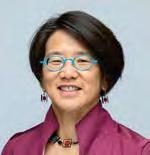
cally asked the attendees. The daughter of one of Cisneros’ sisters, Dudley and her husband moved from Boston to San Francisco in 2018 partly because they knew, in doing so, they would have family in the area living nearby – Cisneros and his husband, San Francisco Human Rights Commissioner Mark Kelleher. Asked by the B.A.R. what she thought contributed to her uncle not facing contested elections, Dudley chalked it up to his focus on doing the work and eschewing the public spotlight for it.
“I think he is good at the job, so it is an easy sell for letting him continue to do it,” said Dudley, a consultant who now lives in Mill Valley. “I always feel it takes a lot of personality and showmanship to be a politician, but he does it without being too strong or gregarious about it. He just does the job. He gets good results and is
“Whether a transgender person’s gender identity conforms with their assigned sex at birth is intimate personal information entitled to protection under the right to privacy,” Justice Kathleen Meehan wrote in the panel’s unanimous decision, as the Chronicle reported last October.
Despite the court ruling, individual judges retain the authority to decide if someone’s records should be sealed “on a case-by-case basis,” noted Wiener’s office. A fact sheet about the bill contends it is necessary so that such records are automatically sealed and transgender individuals are not “not needlessly exposed to harassment and violations of privacy.”
Wiener’s Senate Bill 59 is officially known as the Transgender Privacy Act. Already signed on as co-sponsors are statewide LGBTQ civil rights organization Equality California, the American Civil Liberties Union of Southern California, TransFamily Support Services, Trans Youth Liberation, and the Harvey Milk LGBTQ Democratic Club of San Francisco.
The bill comes as the LGBTQ community braces for an assault on its rights expected to be waged by President-elect
tent, paid for with my personal credit card, which remains unreimbursed, along with street fair registration and insurance policy I covered out of my own pocket,” he stated.
He said he’s been met with “radio silence” from club officials “despite multiple invoices and reminders.”
Mission Local reported that Kwong acknowledged that he did not take part in the investigation.
“I have not done any of that. I do not have knowledge of that,” Kwong told Mission Local. “They claim to have evidence of that, but I have not participated in the investigation process.”
The outlet reported that Kwong did not delve into specifics.
Several former club presidents issued a statement January 9 indicating they are helping revamp some of the club’s processes. They are Gallotta, Gwenn Craig, Laura Thomas, and Gabriel Haaland.
“As former Presidents of the Harvey Milk LGBTQ Democratic Club, we have been asked to review the Club’s policies and recommend any needed improvements to uphold the integrity of our organization,” they stated.
a good person.”
Cisneros recalled when Newsom swore him into his first term in the position, he did so with a mandate that Cisneros raise a significant sum from philanthropic sources to help launch a tax credit for low-income families that Newsom had budgeted city funds toward. And he wanted it done within four months, a deadline that Cisneros went on to meet.
“It opened my eyes to how to harness the power of the treasurer and tax collector’s office to improve the everyday lives of San Franciscans,” recalled Cisneros, who said he has “one of the best jobs in the building.”
He joked with Lurie that sometime during his term, they “can compare notes” and see, “Mr. Mayor, how you feel about yours. t
Donald Trump and the Republicancontrolled Congress. Transgender rights are already in the crosshairs of the conservative leaders, with Trump pledging to roll back a number of rights for gender-nonconforming individuals as soon as he is sworn into office on January 20.
“As Trump and his cronies continue their cynical incitements of violence against transgender people, it’s critical that we fight back with progressive protections at the state level,” stated Syd Simpson, co-chair of the Milk club’s Transgender Caucus. “It’s really scary to know that there are people out there who want to hurt you and that your personal information is just sitting there for them to exploit. The right to privacy and the right to be safe are precious to our community, and we’ve got to fight for them.”
Wiener also alluded to the expected actions to be taken by the incoming Trump administration as for why his legislation is needed.
“The incoming Trump administration will only embolden abusive rightwing extremists, and it is up to states like California to defend LGBTQ and other targeted communities amid a rising swell of hate,” argued Wiener. t
“We supported the diligent work and thoughtful leadership of the Investigation Committee and the outcome of their findings. The entire membership was given the opportunity to hear a closed-session report on the findings and voted overwhelmingly to affirm the findings and recommendations of the Investigation Committee.
“We are currently engaged in an open and transparent process to review bylaws and procedures to ensure something like this never happens to our Club again,” the former leaders added. “That work, led by our Integrity & Accountability Working Group, will continue in earnest this year. As Donald Trump takes office and puts a target on the back of our community, the Harvey Milk Club’s voice is needed more than ever. We must now turn to the bigger battles that lay ahead, remaining steadfast in our fight for LGBTQ+ rights and for social, racial, and economic justice for all.”
Craig stated in a message that she did not have any additional comments. Haaland and Gallotta said the statement reflects their views. Thomas did not respond to a request for comment. t
Pan will replace Dr. Tomás Aragón, who previously announced his retirement and will step down
January 31. Before becoming head of CADPH, Aragón was health officer for the San Francisco Department of Public Health.
“I am confident Erica will take CDPH to the next level with her deep understanding of public health, strong servant leadership, compassion and work ethic,” stated Aragón. “She brings to this role a unique combination of skills, along with a demonstrated commitment to equity, that will help her deliver results for the people of California.”
Pan has more than 20 years of public health leadership experience,
the release stated. Before joining CDPH, she served as the Alameda County health officer. Pan held various roles at the Alameda County Public Health Department since 2011, including director of the Division of Communicable Disease Control and Prevention, and deputy health officer.
“It is an incredible honor to serve California in this role at a critical time when we need to empower and engage the public to have confidence in the science and evidence that has saved lives and promotes a healthy California for all,” Pan stated.
“Dr. Aragón has been an inspiration and mentor to me from early on in my public health career and
he is a respected public health leader who has led CDPH to ‘become the best at getting better.’ I aim to build on his legacy, and I’m committed to a smooth transition for the Department.”
Pan is also a clinical professor in the Department of Pediatrics, Division of Pediatric Infectious Diseases at UCSF.
Pan joined CDPH in July 2020 as the deputy director for the Center for Infectious Diseases and State Epidemiologist. During that time, she helped lead the state through the COVID-19 pandemic, multiple infectious disease outbreaks, Ebola planning, and the current bird flu situation. t


by David-Elijah Nahmod
From January 17 until February 23
BAM/PFA, the Berkeley Art Museum and Pacific Film Archives, will present “Masc II: Mascs Plus Muchachas,” a film festival which will celebrate the culture of masculine assigned female at birth people. The festival’s subtitle, “Butch Dykes, Trans Men and Gender Nonconforming Heroes in Cinema” describes what audiences who attend the screenings can expect.
The series is a sequel to last year’s wildly successful first Masc series, with both festivals being curated by filmmaker and film historian Jenni Olson. This year there will be seven films that reflect a range of masc experiences, with each film being followed by special guests engaging in post-screening conversations.
Some of the films being shown are classics that were ahead of their time, such as “Vera,” a 1986 film which presents one of the earliest portrayals of a trans masculine character in world cinema. This rarely seen Brazilian drama is based on the life of



the Brazilian trans poet Anderson Bigode Herzer, who wrote his poetry during the late 1970s and early ’80s. Tragically he took his own life at age twenty. This film has been completely unavailable in the USA since it was made almost forty years ago.
“For many of these films I’ve also been making connections to US distributors to try to facilitate re-releases here, so it will be exciting to see if some of them become available again,” Olson said in an interview with the Bay Area Reporter. “There are only two films in the series that have current US distribution, ‘Orlando, My Political Biography’
by Robert Brokl
Thames & Hudson Publishers are marking the approach of Hockney’s nonagenarian status with a new book of his artwork. Has any modern artist enjoyed such popularity over such a long period, his career beginning fresh out of art school and now, in ripe old age, still working away in the Normandy countryside.
“Hockney’s Pictures” is an updated and expanded version of the volume from 2004, edited and with a minimum of texts by Andrew Brown, and packed with 522 illustrations. Hockney’s droll wit is also on display:
“Americans take showers all the time. I knew that from experience and physique magazines,” and, “The moment you realize what Picasso is doing…you become aware, perhaps more than ever before, there are different forms of realism and some are more real than others.”
and Dee Rees’ ‘Pariah,’ which is a really moving coming-of-age drama about a Black butch teen trying to come out to her parents.
“Our special guest for that post-screening conversation is artist and filmmaker Leila Weefur. Having ‘Orlando, My Political Biography’ as our opening night film is really exciting. This is trans philosopher Paul Preciado’s innovative New Trans Cinema essay film, and we’ll have a special talk afterwards with trans archivist Ellis Martin and historian Susan Stryker.”
The book begins with Hockney’s painterly Pop work from the early 1960s and proceeds with familiar examples of the mature work, often painted in a more precise and realistic manner, like “Still Life with T.V.,” 1969, the widely reproduced paintings “Mr and Mrs Clark and Percy,” 1970-1 and “Mt. Fuji with Flowers,” 1972.

Hockney’s work lends itself well to the categories the editors have chosen: “Problems of Depiction, Life Stilled, Portraits, Space and Light, and Endless Inspiration.” Hockney includes more experimental work, evidence of his self-confidence and risk-taking, and some that don’t soar, to be expected in a volume of so many images, in different media spanning six decades.


He expanded his oeuvre to opera sets and photo collages such “Pearblossom Highway,” 1986, desert scenery with highway signs and roadside litter. Happily, the book also features recent work, primarily pastoral landscapes, from Yorkshire, England, and France. There are many unfamiliar images, including photographs and sketchbook pages, rife with evidence of his virtuosity and aplomb with line, color, and composition. Some are awesomely beautiful, such as the watercolors “View from the Mayflower Hotel, New York (Evening),” 2002, “A Gap in the Hedgerow,” 2004, and the photo collage “Rain on the Pool,” 1982.
Sketchbook pages display a masterful, loose line. “Como,” 2003 as well as “Andalusia. Mosque, Cordova,” 2004, are notable examples. Dedicated Hockney enthusiasts might peruse “David Hockney by David Hockney” published in 1977 for a




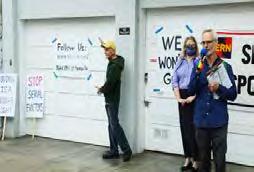


by Brian Bromberger
2024 may go down as the Year of the Older Woman in movies. Now comes 57-year-old model, sex symbol, reality star, diva punchline Pamela Anderson in a performance of a lifetime (not that there was much competition with her other roles such as “Baywatch” or the lousy “BarbWire”) in director Gia Coppola’s “The Last Showgirl,” distributed by Roadside Attractions.
The film bears a passing similarity to the exceptional “Anora” about the pitfalls of being a showgirl, even a younger one, but especially “The Substance” concerning an older performer fired from her job because she’s too old, using a black-market experimental drug to create a younger version of herself. Sexism and ageism bind these two films together, with Anderson and Demi Moore – resurrected Hollywood has-beens –duking it out this awards season.
Razzle, frazzled
Shelly (Anderson) is a veteran tits and ass dancer in a gaudy, glitzy Las Vegas revue called “Le Razzle Dazzle” that is closing in two weeks after 38 years, due to declining audiences (down to 15 per show). Shelly has performed in the show for more than 30 years, originally starring as the headliner in this splashy, feathered, sequined, rhinestone headpieces, stiletto heels, and topless spectacle once a Vegas institution, but now a dinosaur.
Shelly has long been relegated to the back of the chorus line with much younger women kicking up front. Shelly is devastated at the news, fearing at her age it’s probably a careerender, but has no idea what her future holds. More crude explicit entertainment like “The Dirty Circus” is popular, making “Le Razzle Dazzle” seem old-fashioned.

“I feel so good about myself in the show with all the costumes, the set, being bathed in that light, night after night. Feeling seen, feeling beautiful. I can’t imagine my life without it,” she muses. She acts as the mother hen to two younger dancers, Jodie and MaryAnne, but is so self-absorbed in her own miasma, that when they come to her with problems, the unmaternal Shelly shoos them away.
Shelly’s friendly with gruffy stage manager Eddie (an excellent Dave Bautista) with whom she has a history. Her bestie is Annette (Jamie Lee Curtis), a former Razzle performer, who, seeing the light, left and became a cocktail waitress at a casino. She
drinks too much and gambles away her paycheck to the point of being evicted from her apartment.
Then there’s her daughter Hannah (Billie Lourd, Carrie Fisher’s daughter), the product of a passing fling. But Shelly so consumed with her career, left Hannah with the family of a close friend to raise her. They haven’t seen each other in a year and Hannah now a college student pursuing photography, reappears, not ever having seen “Razzle.” Hannah is bitter and resentful, bearing a grudge against Shelly for ignoring her parental duties, with Shelly clueless why Hannah is so unhappy with her.
The fading star faced with limited options is a Hollywood oft-told staple going back to the 1920s. And honestly,
this film doesn’t bring anything new to the table, except the perspective of a disillusioned striptease dancer. The
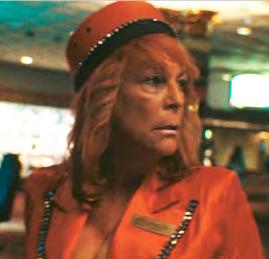
script is problematic because while it is character-driven, the only character well drawn is Shelly.
Monroe-esque
What makes the film worthwhile is Anderson’s performance. It feels as if it’s the culmination of her career, that everything she’s done in the past or happened in her tabloid personal life, has prepared her for this watershed role. She exudes a wounded vulnerability similar to Marilyn Monroe’s Sugar in “Some Like It Hot” that grabs you from her first screen appearance.
There’s not a phony note in what is basically an unlikable, scattered, confused protagonist yet Anderson makes you care about her fate. She’s receiving deserved Oscar buzz, having already been nominated for Golden Globe and Screen Actor Guild awards. The fact audiences will question whether Shelly really believes she’s an endangered artist or it’s a way to protect herself from the harsh reality of her imminent extinction, displays how well Anderson has thought through Shelly’s indignities and incongruities.
“The Last Showgirl” doesn’t provide any resolution for Shelly other than that’s she a survivor. There’s no cliché ninth-hour Hollywood self-revelatory transformation. It’s a small, sad, somber story, though Coppola makes the right choice to make seductive Las Vegas into a character, albeit a cruel one.
The only razzle dazzle here is Anderson, but she’s a stellar inducement to watch this entertaining hodgepodge cautionary tale of a desperate woman faced with the unfair brutal realization that sexiness and meager talent does indeed have an expiration date.t
‘The Last Showgirl’ plays now at Landmark’s Opera Plaza Cinema and the Presidio Movie Theater www.roadsideattractions.com
1951 Mexican film that doesn’t reflect the masculine theme. Olson said she had been searching for it for decades and finally found a way to show it via an archive in Mexico. It’s the story of a teenage girl in love with her teacher at a convent school and is a remake of the 1931 German film “Madchen in Uniform,” which is considered to be the first lesbian film ever made. Olson said that she couldn’t resist the chance to show it.
“It literally has not been seen here since it was released almost 75 years ago,” said Olson. “Although it has a tragic ending, as so many older queer
films do, it’s a terrific adaptation and is cinematically very interesting. It was condemned by the Catholic church at the time, so you know that’s a pretty great recommendation. I’ll be in conversation afterwards with UC Berkeley professor Juana Maria Rodriguez.”


Olson feels that it’s very important for queer audiences to see affirming, celebratory, and complex representations of themselves on screen. She noted that the current political landscape for LGBT people is quite dangerous, especially for trans people, who are the main targets of an endless barrage of right-wing fear mongering. The lies and hate being spread by the incoming president and his allies have already resulted in the retraction of basic rights for trans people in half the states across the country.





“To come together as a community and experience the power and joy of seeing ourselves, both onscreen and in the audience, is such a necessary thing, especially at this moment in our history,” she said. “For last year’s series, almost every screening sold out. I think people are really feeling the need to be together right now.”
Olson hopes that people beyond the trans and butch dyke communities will come to the screenings.
“Every single one of these films is compelling not just as representation of butch/trans protagonists, but cinematically, and just as really wonderful stories and performances,” she said. “I hope all kinds of people will come out to see them.”t
‘Masc II: Mascs Plus Muchachas: Butch Dykes, Trans Men, and Gender Nonconforming Heroes in Cinema,’ Jan. 17-Feb. 23, Berkeley Art Museum/Pacific Film Archive, 2155 Center Street, Berkeley. $18. www.bampfa.org
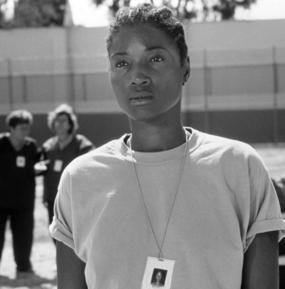
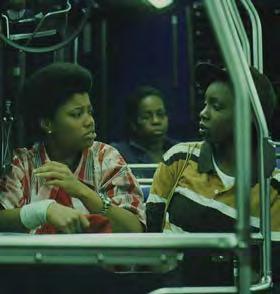



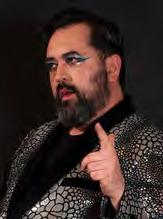
by Jim Gladstone
Sketchfest returns this weekend for a 22nd citywide celebration of mirth. With icons like Laraine Newman, Bill Murray, the casts of “Futurama” and “Bob’s Burgers,” as well as Kathryn Hahn at the Palace of Fine Arts Theater, there are plenty of popular events to go around at multiple venues in San Francisco. Here are a few of the queer performers and queer-focused programs worth checking out.
Joel Kim Booster
The writer/star of “Fire Island” and featured actor in Maya Rudolph’s Apple TV series, “Loot” returns to SketchFest with an all-new stand-up set, “Rude Little Pig.” Given its title, one might expect the show’s material to hew closely to the queer, sex positive, stereotype-exploding repertoire of Kim’s 2022 debut Netflix special, “Psychosexual.”
But while fans of Kim’s earlier stand-up will certainly find some laugh-out-loud raunch here, the show is said to be more tightly constructed and self-reflective. It’s built around Kim’s relationships with “the two most important men in my life” his adoptive
father and his boyfriend (now fiancé) of four years, both of whom are white.
Booster will also host a live taping of his podcast “Bad Dates,” showcasing awful memories from local legend Peaches Christ (whose talk with Tim Curry is sold out); cutiepie comic Dave Mizzoni, and Spike Einbinder, trans sibling of queer “Hacks” star Hannah Einbinder (Their mom is original Not Ready for Prime Time Player, Laraine Newman, also a performer at this year’s Sketchfest).
“Rude Little Pig,” Jan. 24, 7:30pm, $40 (Sold out, limited tickets may be available at the door). Great American Music Hall, 859 O’Farrell St. “Bad Dates,” Jan 25, 4pm, $43.25$67.10. Cobbs Comedy Club. 915 Columbus Ave.
¿Donde Esta Mi Comedy?
The funniest Latin-American comedians from all over el mundo to bring you a live comedy experience that will be full of chanclas, chiles, chistes, besos, y amor. Queer poet and host Baruch Porras Hernandez created the showcase back in 2016. His guests are Graciella Hamilton, Steve Hernandez Molina Molina Ashley Monique, and Sergio Novoa
¿Donde Esta Mi Comedy? Jan., 16, 7pm, $35, The Lost Church, 988 Columbus St.
Straightio Lab
Funny queer brainiacs George Civeris and Sam Taggart use the platform of their popular podcast, StraightioLab, to apply the quick wit of stand-up comedy to funny, but surprisingly thought-provoking exami-
nations of “straight culture.” They’ll record a new episode live at Cobb’s.
Straightio Lab. Jan. 17, 9:45PM.
$30.75-$54.80.
Trans-It Girls
Billing themselves as the Trans-It Girls and curating impressive line-ups of fellow trans and ally comedians, Nori Reed and Hayden Johnson have been selling out shows in New York and Los Angeles.
Reed, now based in Los Angeles, got her start on the Oakland comedy scene about 10 years ago, beginning with sets at queer showcases but quickly getting bookings for general audience gigs. She’s performed on Showtime, HBO Max, and at Comedy Central’s Clusterfest in San Francisco, where she was the invited opening act for headliner Amy Poehler. Reed will also present one of Sketchfest’s “Fake Ted Talks” at a later event.
Johnson gained major attention last year with an hour-long solo set called “Twink Death,” cleverly conceived as a funeral ceremony for her former self.
Among the other performers at the Sketchfest edition of Trans-It Girls is

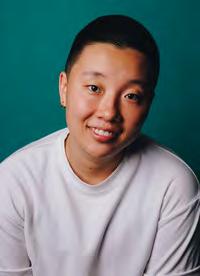


by Gregg Shapiro
Compared to other big cities, Chicago arrived late to the punk rock scene, but when it did, it was first embraced in gay bars such The Greenleaf (which later became Oz) and La Mere Vipere. It was in these venues that bands such as the Effigies and Verböten first got their start.
Praised by the late, great musician and audio engineer Steve Albini, the Effigies return with “Burned” (BFD), the band’s first new album in 17 years, and the final release featuring vocals by the late lead singer John Kezdy, who died in a 2023 bicycling accident during the recording of “Burned.”
The Effigies driving, scorched sound, which has more in common with LA punk than New York punk (say, Black Flag as opposed to the Ramones), is in full force on the album. The mood and view is unsurprisingly political, particularly given the age of the band members and what they’ve lived through. This comes through loud and clear on the songs “Incident on Lost Na-
tion Road,” “Manifesto,” “Everything’s Coming Off,” “Johnny and Dan,” and “Cede the City.” www.effigies.com
In addition to playing shows at La Mere Vipere, Verböten has other connections to the LGBTQ community. Lead vocalist Tracey Bradford, who also happens to be the cousin of Dave Grohl (of Nirvana and Foo Fighters fame), is a queer woman. Guitarist and vocalist Jason Narducy, a longtime friend of the community, is known for recording and touring with queer music legend Bob Mould.
Considering Narducy’s collaboration with Mould, it’s not surprising that some of the songs on Verböten’s long-awaited self-titled debut album, on Inside Outside Records, have a sound reminiscent of Hüsker Dü. Of course, there’s an art to sustaining this kind of musical blast, and the band members aren’t as young as they were in the early 1980s, so they deserve kudos creating this record.
Additionally, with age comes rage and wisdom, two things that the
album has in abundance, as you can hear “Dark Things,” “Bodily Autonomy,” “Full Disruption,” “No More Indecision,” “Kicking Away,” “Human Division,” “Radiate,” and “Conviction of Youth.” This album could easily be the resistance soundtrack we need. instagram.com/verbotentheband
After the early days of the Effigies and Verböten, a lot occurred in the Chicago music scene, especially during the 1990s with the rise of huge acts such as Smashing Pumpkins, Liz Phair, Fall Out Boy, and Wilco, as well as the comeback of Mavis Staples.
Chicago continues to be fertile ground for new musical acts including Dehd and Friko. It’s unclear if the members of Friko, led by Niko Kapetan and Bailey Minzenberg (who identifies as queer and uses they/them pronouns), ever listened to the Effigies or were aware of Verböten before making their debut album “Where We’ve Been, Where We Go From Here” (ATO), but they travel a similar punk rocking path on songs such as “Chemical,” “Crashing Through,” and “Crimson to Chrome.”
In other places, Friko makes some of the most unexpectedly lovely sounds, especially on “For Ella,” “Until I’m With You Again,” and “Cardinal.”

Sabrina Wu, the non-binary, Brooklyn based performer best known for their hilarious turn as Deadeye in the 2024 film “Joyride.” One of this year’s Sketchfest Dozen, Wu will also perform a full half-hour set of her own during the festival.
Trans-It Girls. Feb. 1, 9:30pm, $34.86. Gateway Theatre, 215 Jackson St.
Fake Ted Talks. Jan. 31, 7:30pm and 9:45pm, $54.80-$67.10. Cobbs Comedy Club, 915 Columbus Ave.
Brendan Scannell
Impish ginger Scannell is best known for playing genderqueer
Heather Duke in the short-lived 2018 television reboot of “Heathers” and the more successful two-season Netflix S&M comedy “Bonding.” Scannell’s stand-up sets are delivered with twinkle-eyed cunning, as he consciously juxtaposes his boyish manner with the dirtiest of jokes.
Brendan Scannell: Neighbor Boy. Jan. 25, 3pm, $37, Lost Church, 988 Columbus Ave.t
For the complete Sketchfest calendar, visit sfsketchfest.com

Friko performs on May 7 in San Francisco at Rickshaw Stop. www.whoisfriko.com
If you didn’t know better, the first time you hear the song “Dog Days,” the opening track on “Poetry” by Dehd (Fat Possum), you might think you were listening to a new song by queer band The Drums. But you’d be wrong. Of the Chicago bands included here, Dehd could be described as the most sonically accessible.
The song “Mood Ring” (with the music video starring a couple of drag queens) continues to be in regular rotation Sirius XMU. From the subtle country punk of “Hard To Love” to the other worldly “Alien” to the heights of “Don’t Look Down” to the cutting edge of “Knife,” Dehd give listeners reasons to live, in spite of the current state of the world. www.fatpossum.com/collections/ dehd t

by Laura Moreno
“The Last Dream” by Pedro Almodóvar (translated by Frank Wynne) is a collection of 12 short stories, including eight works of fiction, that were written over a span of 55 years.
Considered a “fragmentary autobiography” by the author, this book demonstrates the Academy Awardwinning film director’s literary prowess and versatility. His writing, like his filmmaking, delves deep into the human psyche using beautifully crafted spare prose.
The Spanish-speaking world will be quick to note the title’s allusion to the 18th-century epic poem “First Dream” (Primer Sueño) by Mexican lesbian Renaissance nun, playwright, philosopher, inventor, painter, and composer Sor Juana de la Cruz. (“I, the Worst of All,” a film of her life based on research done by Nobel Prize Laureate Octavio Paz, is available for free online.)
“Fabulator,” not writer
In the book’s introduction, Almodóvar writes that he sees himself as a “fabulator,” his preferred term to describe what he does. It’s a freeing term for him, freeing from a strict adherence to the truth, and even from himself as author-director. He rather prefers to consider himself a mere guide taking us on a wild ride into the recesses of his mind.
He writes that there is an “intimate relationship between what I write, what I film and what I live.”
Despite bold story lines that know
From page 11
more complete compilation of the earlier work; and museum goers will find some images familiar from the sprawling 2013 San Francisco de Young Museum exhibition of his work.
Hockney’s sunbathers and swimmers, cultural icons like writers and poets, art dealers and collectors, friends and amours, made his reputa-

no bounds and an exhibitionistic alter-ego named Patty Diphusa (“patidifusa” is Iberian slang for flabbergasted) that first appeared in the Spanish magazine La Luna in 1979, the fabulator remains a very private person hidden behind the camera. Nonetheless, several stories fill in biographical information about Almodóvar the man, such as the title story “The Last Dream,” about the day his own mother died. It represents his finest writing in his own view.
In the short story “The Visit,” he reveals the story of how one of his most enduring films “Bad Education”
tion and he’s never really left the figure.
One of his most famous double portraits is of the novelist Christopher Isherwood and painter Don Bachardy at home in Santa Monica, suggestive fruit bowl on table, from 1968, and Hockney and the painting play a supporting role in the new Isherwood biography, “Christopher Isherwood: Inside Out” by Katherine Bucknell.
The portrait was quite obviously a labor of love for Hockney (Bachardy’s


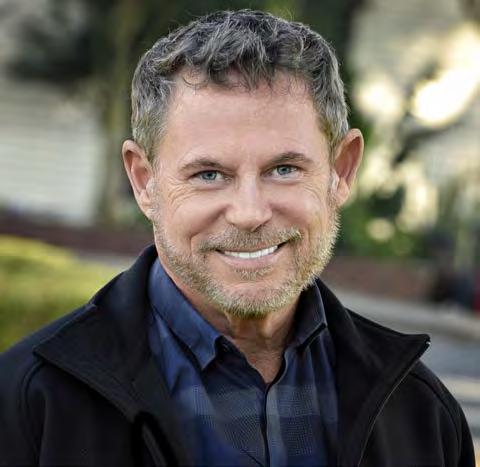

about clerical abuse came to be.
Like fine sculpture, Almodóvar’s writing has carved away all the superfluous description that many writers and readers luxuriate in. This book, however, is not perfect; no work ever is. At times the fabulator seems to be trying too hard to be overly creative when there’s no need to be, something that feels like a more egregious sin in literature than in labor-intensive filmmaking: “Genet was a sauce we sometimes used to douse our work together.” Whatever the book’s few mechanical shortcomings, it more than makes up for it in creativity.
depiction proved especially hard, as he was mostly absent studying art in London), who wept when it moved from one private collection into another and not into a museum for public viewing.
Hockney blurbs the biography, calling it “A first rate biography of the man, the writer, and the lover,” although the biography includes the Francis Bacon put-down of Hockney (“She’s no good”) and Isherwood’s diary comments during Hockney’s well-documented (“A Bigger Splash” cinema verite even) break-up with Peter Schlesinger: “Oh, yes, indeed, David is a monster in the making. But I love him and Don loves him and he is lovable…and wonderful and kind and generous and full of life.”
New techniques
However, his more recent posed portraits of seated figures against bright backdrops have a repetitive
The secret to his genius
In “The Mirror Ceremony,” a vampire enters a monastery and manages to transcend his unsatisfactory circumstances through an obvious yet startlingly novel solution: he simply accepts Christ’s redemption of his soul!
Stories like this get readers wondering whether the premise of the plot is silly or serious. With Almodóvar, it’s always both, always a paradox, always as fascinatingly complicated as real life.
The same can be asked of the story “Too Many Gender Swaps,” which contains ideas that appear in several films including the gay thriller “The Law of Desire” and the wondrous film “Dark Habits” on which the terribly dumbed-down “Sister Act” films were based.
In “A Bad Novel” Almodóvar, 75, commands interest as he tries to candidly assess his own writing. But when he sets out to assess it again in “Memory of an Empty Day” we begin to see why he has thus far not been prolific. Nonetheless, the story fascinates as he tries to measure his worth as fabulator in light of the fact that he is aging and no longer shares
quality, and don’t reveal much about the sitters. Even uber-art dealer Larry (“Go Go”) Gagosian looks just normal, with none of the penetrating psychological acuity of an Alice Neel portrait.
And some, like “Dancers I and II” from 2014, referencing the great painting by Matisse, seem awkward by comparison and could have been left out. His eagerness to try new processes like iPads, iPhones, and Brush painting app also sometimes trips him up, like the recent computerarranged compositions of figures in rooms or the Photoshop “Fantasia”esque “Arrival of Spring in Wolgate, East Yorkshire 2011, sprawling 12 by 32 ft.
The uncharacteristic, odd remake of Masaccio’s “Expulsion from the Garden of Eden,” 2002, pairs Adam and Eve figures with a lab slide floating array of blobs and blots, a rather off-putting Eden.
But clearly Hockney is now in




a culture of youth with an evergrowing percentage of his audience (readers).
The memorable short story “Adiós, Volcano” was written as a tribute to the great Mexican queer singer Chavela Vargas upon her death. Vargas gained success despite (or because of) her masculine appearance and dress, and famously dated women like Frida Kahlo, even photographing themselves frolicking in the grass. The singer is featured in a number of his films. And finally, the collection would not be complete without a proper romp into surrealistic territory, not so far removed, really, from Catholic reality. “The Life and Death of Miguel,” written when Almodóvar was very young man, depicts a world in which death and life happen in reverse as people grow younger, like Benjamin Button. (He was certain the idea was stolen when he first learned of the film.) Writing the story, he reflects, was his attempt to come to terms with our powerlessness in the face of unstoppable time. All in all, reading “The Last Dream” is well worth your time. But the book is best enjoyed after watching at least a few of his world-class films. In particular, I recommend “Women on the Verge of a Nervous Breakdown” and “All About My Mother” as a basic introduction to the wild world of Pedro Almodóvar.t
‘The Last Dream’ by Pedro Almodóvar, HarperVia, $26. www.harpercollins.com
love with, and reinvigorated, by landscape, in the scenes from Yorkshire and Normandy. His is not the more contrived wisteria-covered, Japanesestyle bridge of Monet, staged Nature as subject matter (although he paints Giverny), but more rustic, bucolic fields, rows of trees, ponds, and cloudscapes.
More contrived landscapes like the tortured seascapes of Malibu from 1988-9 have yielded to idyllic vistas of flowering shrubs and allees of trees, perpetual spring and summer seasons. His vision is sweet but not sappy, evidence of a life not marred by rue or regret. Hockney daily makes simple iPhone images of flowers to send to friends, perhaps partly to reassure them he’s still up and about, gazing out the window, liking and depicting what he sees.t
‘Hockney’s Pictures,’ Thames & Hudson Publishers, $43, www.thamesandhudson.com



by Laura Moreno
Talented local artist and cartoonist
Ajuan Mance recently published “Gender Studies: True Confessions of an Accidental Outlaw,” a graphic memoir that gives plenty of food for thought.
“Gender Studies” is a fun and worthwhile read. Just 82 pages in length, this book is packed with stories that explore the author’s own personal gender journey in addition to other interesting aspects of her life. Plenty of good humor is peppered in.
Mance’s previous books include the colorful picture book “What Do Brothers Do All Day?” (2023), “Inventing Black Women: African American Women’s Poetry and SelfRepresentation, 1877-2010” (2007), and “Before Harlem: An Anthology of African American Literature from the Long Nineteenth Century” (2016). A Professor of English and Ethnic Studies at Mills College, Mance explores the relationship between race, gender, and representation.
In the Introduction, Ajuan Mance acknowledges that “Love and Rockets” by brothers Gilbert and Jaime Hernandez was her first inspiration to try her hand at drawing comics, one day.
But it wasn’t until Ed Luce, the LGBT creator of “Wuvable Oaf” comics, shared some of his techniques and philosophy of cartooning to Mance that actually she gave cartooning a try. Cartooning is just like writing fiction,
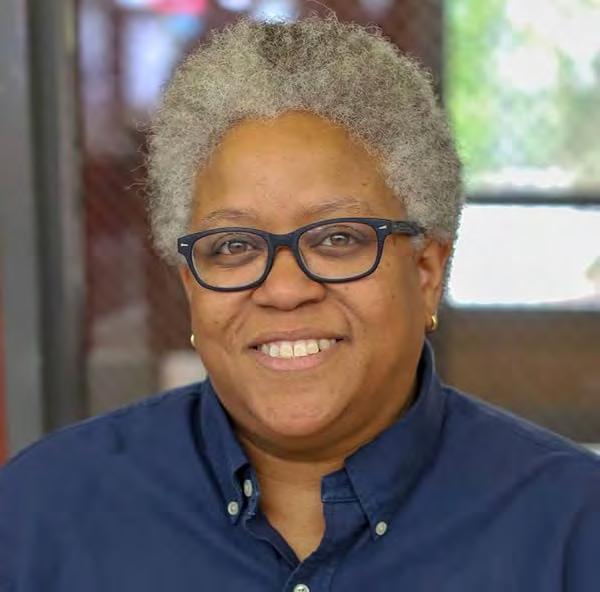
he said, except the story is portrayed visually instead of with words.
Beyond binary
In the opening chapters, Mance takes us behind the scenes to witness her own personal gender journey experienced before people had the words to express what they were feeling. Once she came out, things weren’t necessarily much clearer.
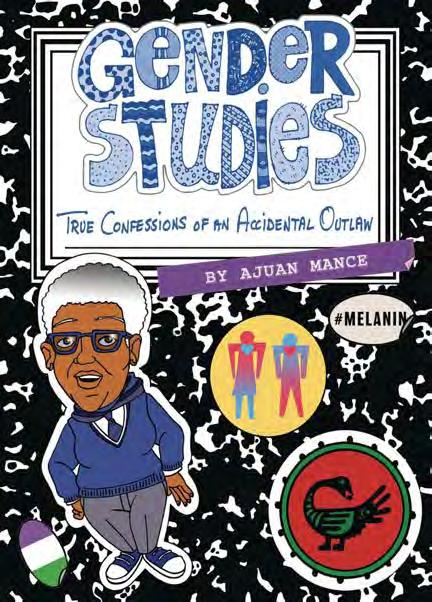
For example, Mance recalls that she had a lot in common with the male friends she hung out with, such as her love for sports, beer runs, and men’s sweaters. But she found herself unable to decipher her feelings for a time, writing that she felt “you’re on your own” in trying to figure out a path forward.
Americans in her high school, college, or on the job, she observes that the first thing other people noticed about her was definitely not her gender.
Requiem for the Hot Comb
about how to maintain the resulting hair-dos.
Memorably, the story includes drawings of natural hair being flattened into straightened hair, and various straightened hair-dos that have been ruined by the rain.
“Getting your hair straightened for the first time was like being inducted into a Black woman’s secret society,” Mance observes about the potentially dangerous ritual. Today, chemicals or hair weaves do the trick.
The section “Check All That Apply,” also packs a lot in using just a few words. Mance fills in the blank next to the last box she has checked, writing “In love.” We turn the page in anticipation to learn that PBS’s brilliant astrologer Carl Sagan is the smooth criminal who has imperceptibly stolen her heart. His cartoon depiction seemingly catches Carl Sagan mid-swoon with a far-away look in his eyes as he contemplates the billions and billions of stars in the universe that happen to contain the very same elements as our own bodies, heavenly bodies made of stardust.
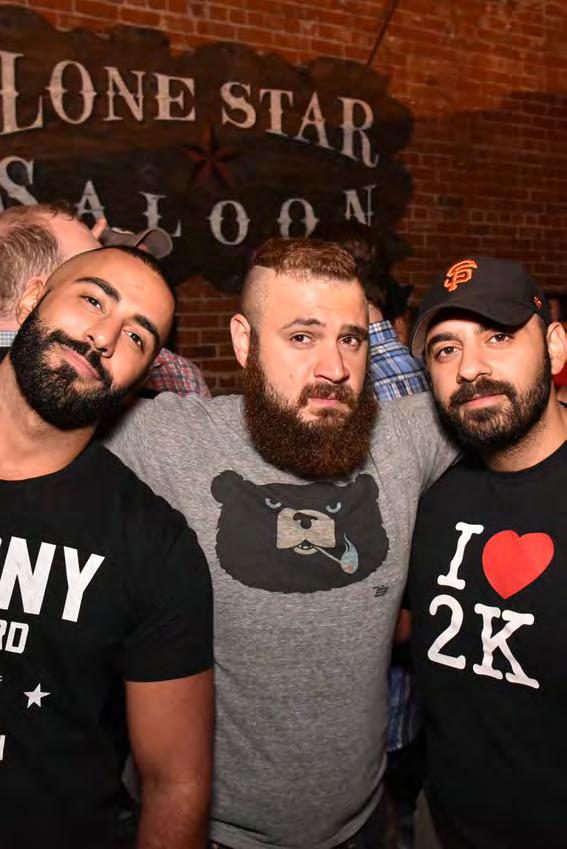

The one role model of sorts she can remember having was Tiffany Banks. Even though Mance was just 7 years old, she recalls noticing something extraordinary about Tiffany Banks. Athletic, self-assured, and popular with the guys as if she was one of them, Mance soon started emulating her cool style of dress.
Later when Mance found herself to be the only or one of the only African
A unique aspect of this book is that it tackles out of the ordinary topics, like the elaborate hair-straightening technique used in the 1960s and ’70s: the hot comb. This is the perfect medium for preserving overlooked aspects of social history like this.
Mance’s drawings make the topic come alive for readers who may know nothing about it. This section gives us a vivid sense of how onerous the process is, replete with an unusual smell, and her comment balloons include some of the many admonishments
Their regular Sunday night longdistance rendezvous contemplating the heavens (via television) continued for some time until Sagan was eclipsed by a yet brighter star. Young Albert Einstein, with his curly black hair and dark features, seemed to her to be at least part Black. This time it was love.t
‘Gender Studies: True Confessions of an Accidental Outlaw’ by Ajuan Mance, Rosarium Publishing, $9.95 www.rosariumpublishing.com www.ajuanmance.com







January 22-26, 2025